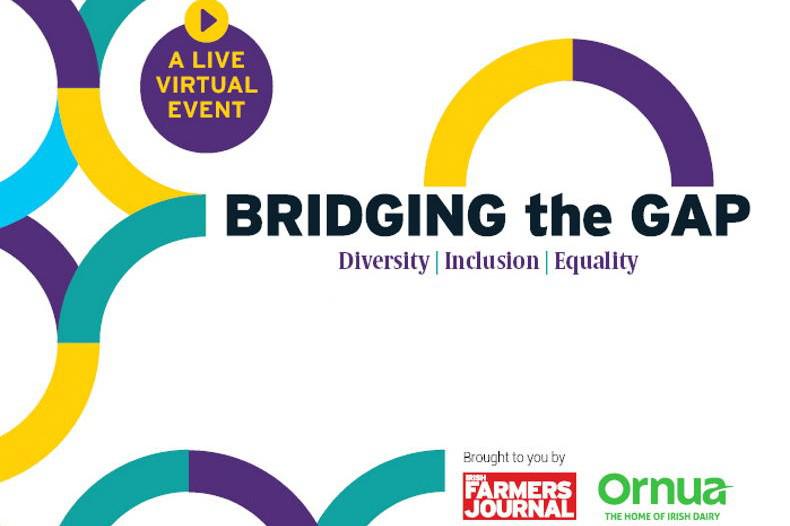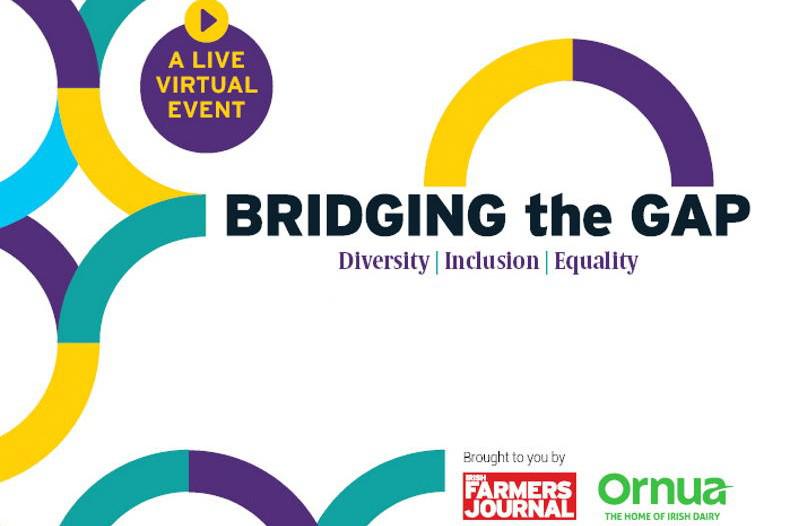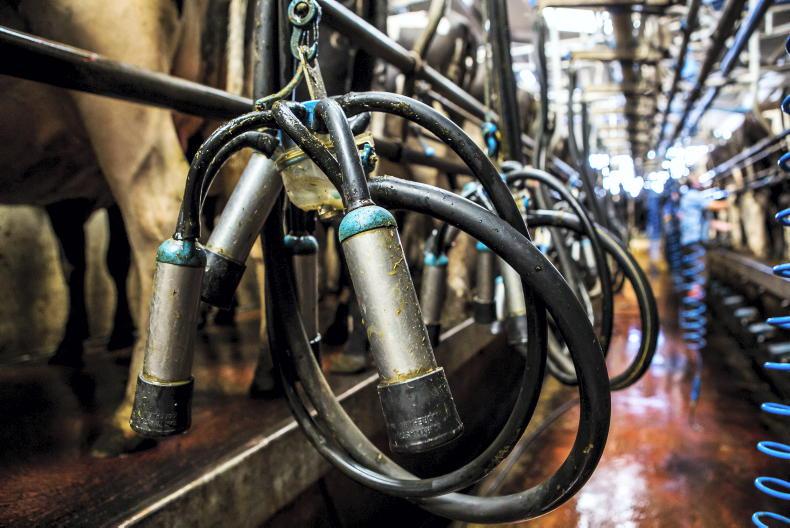The Irish Farmers Journal, in partnership with Ornua, are bringing a new event focused on equality, diversity and inclusion (EDI) in the workplace, titled “Bridging the Gap”.
The event aims to provide information and case studies for companies and organisations who are trying to improve diversity and inclusion at all levels, with particular focus on the agri-food sector. Our mission is to encourage and support the decision makers within the sector and harness the drive for change through a panel discussion, followed by a live and interactive audience Q&A.
Editor and CEO of the Irish Farmers Journal Justin McCarthy will open the event at 10am on Friday 28 May and introduce our panel moderator, editor of Irish Country Living Amii McKeever.
Our panellists include CEO of Ornua John Jordan; Founder and CEO of Trivium Vet Louise Grubb; group CEO of Bank of Ireland Francesca McDonagh; and country managing director at Accenture Ireland Alastair Blair.
The event will be delivered live to a virtual audience from studio in the Killashee House Hotel, Naas, Co Kildare. All of our speakers will be in studio. Our audience will be directly and indirectly involved in the agri-food sector and will range from executive to CEO level.
Lack of inclusion leads to lower outcomes
Agriculture, tech, engineering – these are just a few of the industries still largely dominated by men, and Ireland is no exception to the rule.
The World Economic Forum’s executive summary entitled The Industry Gender Gap explains the lack of gender diversity and inclusion in business will ultimately cost the economy of your country – not just your business, or the women left behind.
Women continue to make up less of the labour force overall than men
“Although women are, on average, more educated than men globally and now participate more fully in professional and technical occupations than 10 years ago, as of today, their chances to rise to positions of leadership are only 28% of those of men,” it reads. “Women continue to make up less of the labour force overall than men, and where they participate in the formal economy their earnings for similar work are lower.”
What leads to a positive change within male-dominated industries? Experts say it requires and overall change in “culture” (an organisation’s operating environment). This is done more easily within a specific company than within an entire industry, so it is up to progressive and trailblazing agri-food businesses to lead by example to create winning, diverse corporate cultures.
Diverse companies are lower risk
Financial risk-mitigation firm Aon’s recent White Paper, Insuring an Organisation’s Culture in the Food, Agribusiness and Beverages Sector, says incorporating an inclusive culture to your business may not be easy, but the benefits will vastly outweigh any initial difficulties.
It reads: “Top companies for gender, ethnic and cultural diversity among their directors and officers can be up to 25% more likely to financially outperform less diverse competitors.”
For companies to create a winning culture, leaders must shift their way of thinking to influence people’s beliefs and behaviours
Deirdre O’Shea is Aon’s food and beverage speciality leader for Ireland. She says changing a culture is not always an easy task because we are all creatures of habit and tend to resist change.
“Culture is intangible, and companies often find it easier to focus more on the tangibles,” she explains. “For companies to create a winning culture, leaders must shift their way of thinking to influence people’s beliefs and behaviours. Many leaders either let their culture go unmanaged or delegate it to HR, where it then becomes a secondary concern for the business.”
A genuine approach
On the flipside, companies who embrace diversity; creating a management-led approach to inclusivity will see benefits in all areas. The White Paper maintains companies at higher risk are the ones without a solid company culture.
A culture built on foundations of inclusion and diversity leads to better business outcomes
Those who implement a shift in culture to be more inclusive, diverse and equal can’t just talk the talk – they need to be genuine in their approach; committing fully to implementing diversity, inclusion and equality at all business levels.
“A culture built on foundations of inclusion and diversity leads to better business outcomes,” Deirdre says.
“There are many reasons for this, but one often cited is good governance. Aon’s research on reputational resilience (in partnership with Pentland Analytics) shows that [in business] 36% of crises are a result of poor governance. Therefore, implementing an inclusive culture can directly impact on the resilience of an organisation’s people and business.”









SHARING OPTIONS